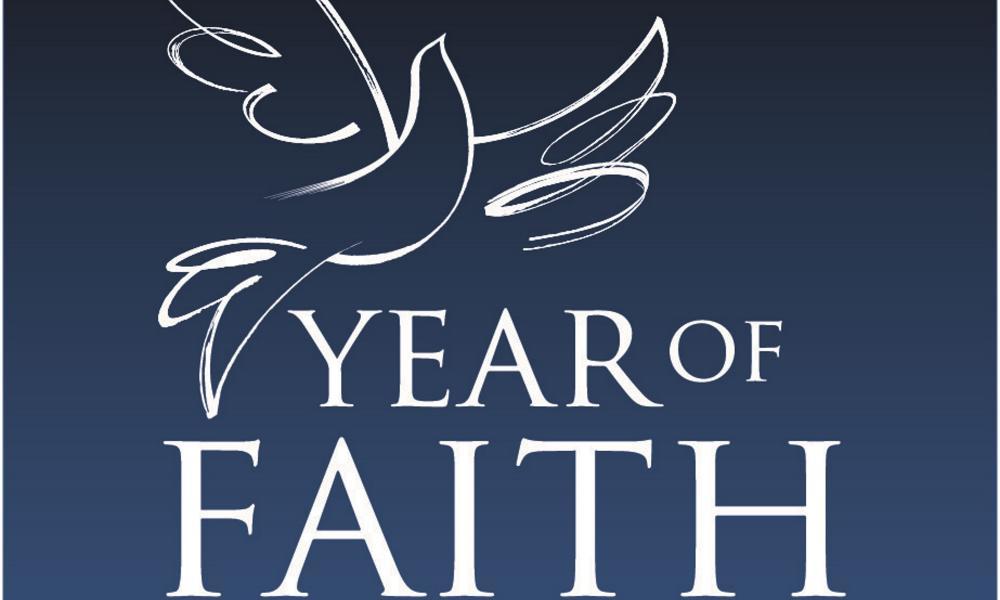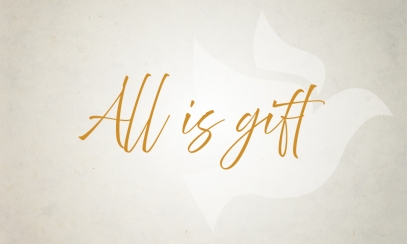
A year of faith, a year of prayer
The door of faith (Acts 14:27) is always open for us.” That is how Pope Benedict announced a Year of Faith, slated to begin Oct. 11, 2012, and end Nov. 24, 2013. Isn’t it interesting to have a Year of Faith, something which all of us have from our baptism? Yet, perhaps this is a great time to understand faith more deeply, especially as we here in this Diocese of Lansing engage in a concurrent Year of Prayer (Aug. 3, 2012- Dec. 9, 2013) for the deepening of our discipleship and the evangelization of others to faith in Jesus Christ.
Now faith is two things: It is a relationship with God (trust in God and abandonment to God’s will) and it is accepting the truth about God (belief in the truths God has revealed). Thus, we often hear the first one described in the form of the question, “Do you have a personal relationship with Jesus?” The second aspect of faith is often described in the form of the question, “Do you believe all that is contained in the Creed and in the Catechism?” Both of these questions must be answered positively if we are to say that faith is alive and active in our lives.
A relationship with the Father, the Son and the Holy Spirit means that we are deeply committed to growing in holiness, growing in the love which the Trinity – the three Divine Persons – have for each other, and which they share with us in baptism and the other sacraments. Jesus wants us to be his friends. Of course, in the face of the holiness of God, this means that we daily seek to convert from our sinful ways so as to be the best friends possible. As Pope Benedict notes, it is love of God and neighbor which moves us to that conversion from our normal selfish ways. That trust in the ways of God, in God’s love, means that we abandon our ways and seek only the will of God for us. St. Paul wrote to the Romans: “Man believes with his heart and so is justified, and he confesses with his lips and so is saved.” (Romans 10:10) Therefore, trust, which is the work of the heart, is necessary for us to say that we have faith.
However, the second part of that quotation also is needed: We are to profess our faith fully with our lips and our minds. Every Sunday, we proclaim the Creed, which is a very brief summary of the core elements of our faith. As Pope Benedict reminds us, “Confessing with the lips indicates in turn that faith implies public testimony and commitment.” This is a public behavior, not a private one. And to agree to something means we need to understand it (as best we can) and accept it. Pope Benedict highly recommends that everyone make use of the Catechism of the Catholic Church, which is an excellent summary of the contents of our faith, faith that grows out of the Scriptures and is deepened in the history of the Church, especially at the Second Vatican Council. I encourage you to develop some study groups with your neighbors or friends to review the Catechism or some shorter version of it. As you know more about God, about the Church, about the contents of our faith, you will find yourself falling more in love with the very God who has revealed all this to us.
The Sunday after Easter, we heard the reading from chapter five of St. John’s First Letter, which brings both aspects of faith – as trust and as belief – to the fore. Part of his conclusion is in these very fitting words: “And the victory that conquers the world is our faith. Who indeed is the victor over the world but the one who believes that Jesus is the Son of God?”
Sisters and brothers, we are all invited to be such victors.
Holy Spirit will grant wisdom and courage to those engaged in this important struggle.



